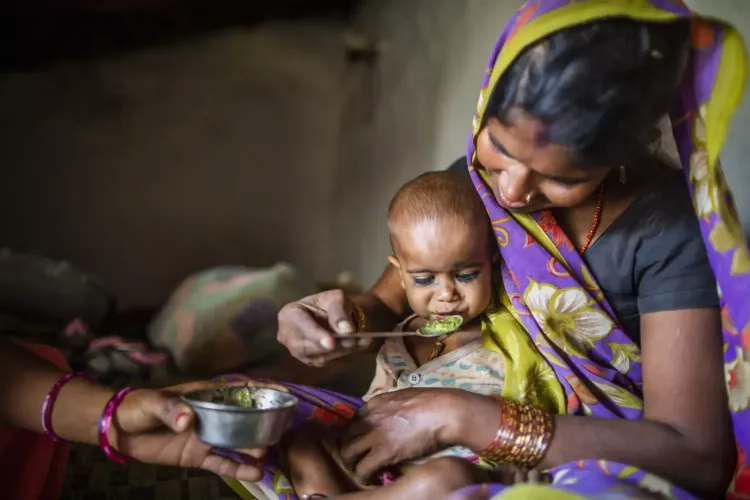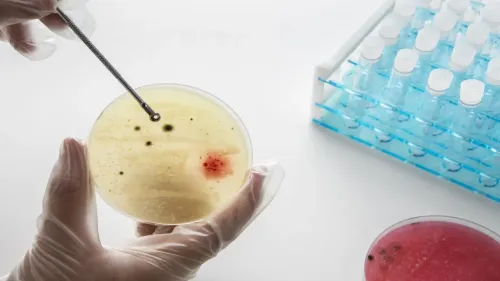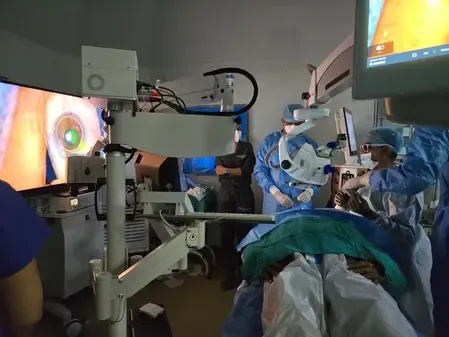How are IIT-AIIMS Jodhpur Researchers Using AI to Assess Malnutrition in Children?

Synopsis
Key Takeaways
- AI enhances the detection of childhood malnutrition.
- DomainAdapt dynamically adjusts task weights for better predictions.
- Fast, scalable screening is achievable through image capture.
- AnthroVision dataset aids in robust health assessments.
- This research promotes equitable healthcare access.
New Delhi, Sep 24 (NationPress) Researchers at the Indian Institute of Technology (IIT) and All India Institute of Medical Sciences (AIIMS) Jodhpur have harnessed the capabilities of artificial intelligence (AI) to enhance the identification of childhood malnutrition.
The innovative technique, featured in the open-access journal MICCAI, addresses one of the most urgent global health issues: the precise and scalable evaluation of childhood malnutrition.
The research introduced DomainAdapt — a groundbreaking multitask learning framework that dynamically modifies task weights using domain expertise and mutual information.
This advancement enables the system to more accurately predict essential anthropometric metrics such as height, weight, and mid-upper arm circumference (MUAC), while concurrently classifying malnutrition-related issues like stunting, wasting, and underweight.
Although traditional screening methods also assess these metrics, they encounter challenges due to the subjectivity of the examiner, the lengthy process of measuring each aspect individually, and limitations in scalability.
“By simply capturing images of a child, our framework can assess nutritional status without the need for intricate and time-consuming anthropometric measurements,” stated Misaal Khan, a doctoral student in medical technology at IIT-AIIMS, who led the research.
“This innovation makes malnutrition screening quicker, more accessible, and highly scalable, especially in resource-limited environments,” Khan added.
Furthermore, a key component of the study is AnthroVision — a pioneering dataset featuring 16,938 multi-pose images from 2,141 children gathered from both clinical (AIIMS Jodhpur) and community (government schools in Rajasthan) settings.
The dataset encompasses a variety of backgrounds, attire, and lighting conditions, making it a robust resource for enhancing automated child health assessments.
Through extensive experimentation, DomainAdapt showcased significant advancements over existing multitask learning techniques, providing a dependable AI-driven solution to expedite malnutrition detection globally.
“This research marks a crucial step toward equitable healthcare access,” Khan remarked.
“By integrating AI and domain knowledge, we can equip healthcare providers and public health systems with tools that are cost-effective, precise, and scalable,” she added.










